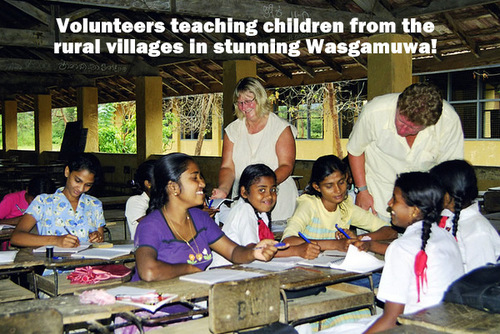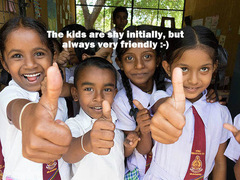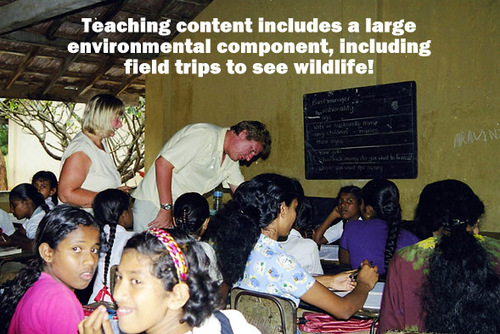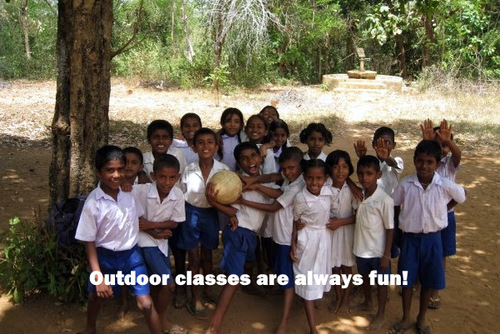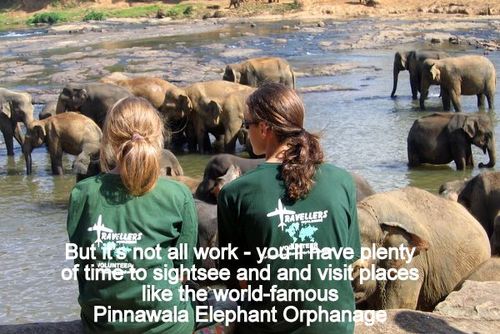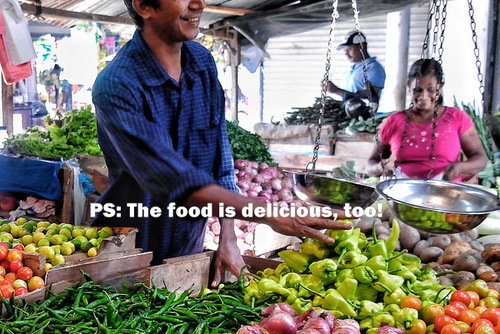PROJECT OVERVIEW
Teach children in a village a 10 minute drive from Wasgamuwa National Park. The teaching schedule, at present, takes place at three locations: one of the two local schools in the morning and the temple class in the afternoon. There are roughly 125 students spread across four different classes each week that you will teach. You will have your weekends free for travelling and sightseeing. Your students will be an eclectic collection - from school children to monks and park wardens!
Go back to basics in a stunningly beautiful location, helping local people and the local wildlife. Here you'll do extremely worthwhile and rewarding work and building towards making a real difference in a very special rural community. The incredible scenery and wildlife in the remote hinterland of the island is, according to the locals, the most beautiful place in Sri Lanka! The surrounding jungles and villages can be explored easily by foot or bike and trips to other parks in the region can be arranged.
WORK DESCRIPTION:
Teach English to local people of all ages in village schools which are very basic and lacking in facilities. As this is a very poor area there is no electricity, so you should be flexible and adaptable with your teaching, much of which will be very hands-on.
There are roughly 125 students spread across four different classes each week that you will teach. You will have your weekends free for travelling and sightseeing.
Sri Lankans are very shy and don’t want to make any mistakes. At first they may be reluctant to answer in English but they do gain confidence very quickly. They are very keen to grasp English and this enthusiasm makes teaching progress at a fast rate.
Your students will always come prepared with their own writing books and pens; these are cherished as they are in such short supply. There is a blackboard at the front of the class and somehow chalk is always found (although if you do have any space in your luggage, a pack of chalk is highly appreciated!). The enthusiasm and pure delight of the children more than makes up for the lack of equipment.
The English lessons usually include a heavy environmental component. For example, you'll take your students on field trips to watch birds, and you may even be asked to teach the basics of bird identification, ecology, behaviour and conservation within the context of each English lesson. This way you can include other natural history subjects such butterflies, reptiles, plants and flowers, natural history in general and anything about elephants!
If you have additional skills in an environmental filed (biology, ecology etc) then you'll have the opportunity to make the most of these. You'll be accompanied by a translator/guide, which will help in your initial communication with your students.
You'll be working with a local NGO who are particularly involved with conservation in the area. The aim of this segment of their overall project is to improve the villagers' education so that they can find rewarding employment in the future. This will include work on environmental projects as well as eco-tourism. These sustainable economic incentives will help to stop the consumptive use of these forests by villagers.
LOCATION
You'll live in a remote village called Pusseleya on the outskirts of the Wasgamuwa National Park, located around 7 hours east of Colombo. The community that you will become a part of is mostly dependant on paddy farming for its livelihood and as such the way of life here is very simple.
The location is breathtaking with incredible scenery and wildlife set in the remote hinterland of the island. The National Park of Wasgamuwa is a dedicated area of conservation, a stunning expanse of grasslands and hills. The locals insist that it is the most beautiful place in Sri Lanka.
ACCOMMODATION:
The Wasgamuwa house is very basic. The makeup of the house is the first thing you notice. It is a house made of entirely eco-friendly material, due to the fact that it was built by a team of conscientious conservationists. This is quite a surprise the first time you see it however! The walls are made of wooden slats and hardened mud and the roof is formed of iron sheets. The floor is concrete. You really do feel like you are in the wilderness! The house is very open to the outdoors.
FOOD: Your food will be freshly cooked by the house caretaker and his wife. Neither of them speak very much English but a smile goes a long way! They are both lovely and love looking after you! The food is basic but delicious! The food usually consists of vegetarian curries, which are made milder than they would for themselves – but there is still a kick to them!
"I couldn’t write this account without mentioning the fantastic food we are given three times a day. Delicious and sometimes unusual Sri Lankan fare is plentiful every day. I shall definitely miss those wonderful curries. Thank you so much for helping make the field house feel like home." Sheree Mitchell
WHAT TO DO NEXT
Send an enquiry - we're there to help you. Most of our team are ex volunteers and are ideally qualified to offer advice and guidance because they know what you're looking for. They'll help you find your perfect project - and then make it all happen! As soon as we receive it, we’ll liaise with you and then start making your travel adventure happen. It’s as easy as that.


